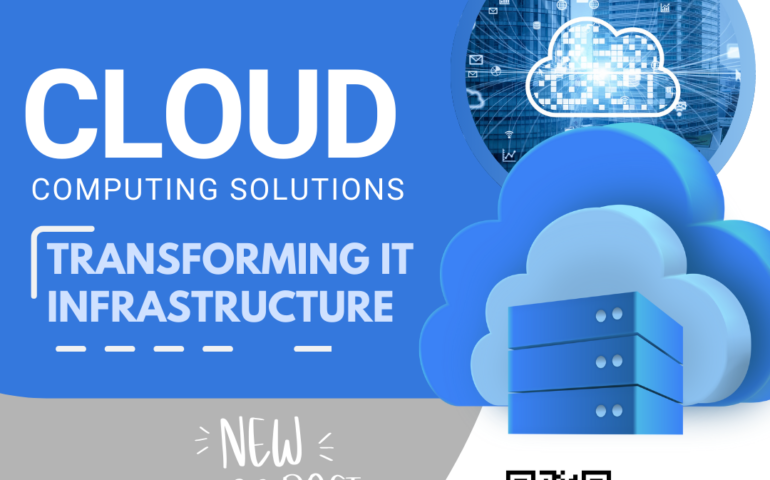
Solution Cloud Computing

Cloud computing has revolutionized the way businesses operate, offering scalable, cost-effective, and highly secure solutions. As organizations continue to embrace digital transformation, solutions cloud computing plays a vital role in optimizing IT infrastructure. In this article, we will explore different cloud computing solutions, their benefits, and how businesses can leverage them for maximum efficiency.
What Is Cloud Computing?
Before diving into specific solutions, it’s essential to understand what cloud computing is. In simple terms, cloud computing refers to the delivery of computing services—including servers, storage, databases, networking, software, and analytics—over the internet. Instead of maintaining physical hardware and infrastructure, businesses can use cloud-based services to enhance their operations efficiently and affordably.
Key Solutions in Cloud Computing
With the growing demand for cloud-based services, several solutions cloud computing provides have emerged to meet different business needs. Below are the most common types:
1. Infrastructure as a Service (IaaS)
IaaS offers businesses virtualized computing resources over the internet. This solution eliminates the need to purchase and maintain costly physical servers. Major providers like AWS, Microsoft Azure, and Google Cloud offer IaaS solutions that scale with business growth. With IaaS, companies can enjoy benefits such as:
- On-demand resource allocation
- Cost savings on hardware
- High availability and disaster recovery options
2. Platform as a Service (PaaS)
PaaS provides a platform for developers to build, test, and deploy applications without worrying about the underlying infrastructure. It simplifies software development by offering built-in tools, frameworks, and databases. Businesses leveraging PaaS can experience:
- Faster development cycles
- Reduced operational complexity
- Enhanced collaboration among development teams
3. Software as a Service (SaaS)
SaaS is one of the most widely used solutions cloud computing offers. It delivers software applications over the internet, eliminating the need for local installations. Popular SaaS solutions include Google Workspace, Microsoft 365, and Salesforce. The advantages of SaaS include:
- Accessibility from any device with an internet connection
- Automatic updates and security patches
- Lower upfront costs and flexible subscription models
4. Hybrid Cloud Solutions
Hybrid cloud computing combines both private and public cloud environments to offer greater flexibility. This approach enables businesses to keep sensitive data on a private cloud while utilizing public cloud services for scalability. Some benefits of hybrid cloud solutions are:
- Improved security and compliance
- Better workload distribution
- Cost-effective scalability
5. Edge Computing
Edge computing is an emerging cloud solution that processes data closer to its source instead of relying solely on centralized data centers. This minimizes latency, enhances real-time processing, and supports IoT applications. Key benefits of edge computing include:
- Faster response times
- Reduced bandwidth usage
- Enhanced reliability for remote locations
Benefits of Cloud Computing Solutions
Now that we’ve explored different cloud solutions, let’s look at the benefits businesses can gain from adopting cloud computing:
1. Cost Savings
One of the biggest advantages of cloud computing is cost savings. Businesses no longer need to invest heavily in on-premise infrastructure. Instead, they can leverage a pay-as-you-go model, ensuring they only pay for what they use.
2. Scalability and Flexibility
Cloud solutions allow businesses to scale their resources up or down based on demand. Whether a company experiences seasonal fluctuations or rapid growth, cloud computing ensures that IT resources match business needs efficiently.
3. Enhanced Security
Leading cloud service providers implement robust security measures, including encryption, multi-factor authentication, and advanced firewalls. Additionally, regular updates and compliance certifications ensure that business data remains protected from cyber threats.
4. Improved Collaboration
With cloud computing, teams can collaborate seamlessly from anywhere in the world. Cloud-based applications enable real-time document sharing, project management, and communication, leading to increased productivity and efficiency.
5. Disaster Recovery and Business Continuity
Data loss can be catastrophic for any business. Cloud solutions offer built-in disaster recovery options, ensuring that data is backed up and accessible even in case of system failures, cyber-attacks, or natural disasters.
Choosing the Right Cloud Computing Solution

Selecting the right solutions cloud computing provides depends on a business’s unique needs. Here are some key factors to consider when making a decision:
- Business Size and Needs: Small businesses may benefit from SaaS solutions, while large enterprises may require a mix of IaaS and PaaS.
- Security and Compliance Requirements: Industries such as healthcare and finance must prioritize compliance with data protection regulations.
- Budget Considerations: Companies should assess the total cost of ownership and select a model that aligns with their financial goals.
- Integration Capabilities: Cloud solutions should seamlessly integrate with existing business applications and workflows.
The Future of Cloud Computing Solutions
As technology continues to evolve, solutions cloud computing will become even more advanced. Emerging trends such as artificial intelligence (AI), serverless computing, and quantum computing will further enhance cloud capabilities, enabling businesses to innovate and optimize their operations.
Cloud computing has transformed the IT landscape, offering businesses scalable, secure, and cost-effective solutions. Whether leveraging IaaS, PaaS, SaaS, or hybrid cloud, organizations can optimize their operations, enhance security, and improve collaboration. By carefully selecting the right cloud computing solution, businesses can future-proof their IT infrastructure and remain competitive in the digital age.
If you want to read more information about how to boost your website traffic, just visit –> TekHive





